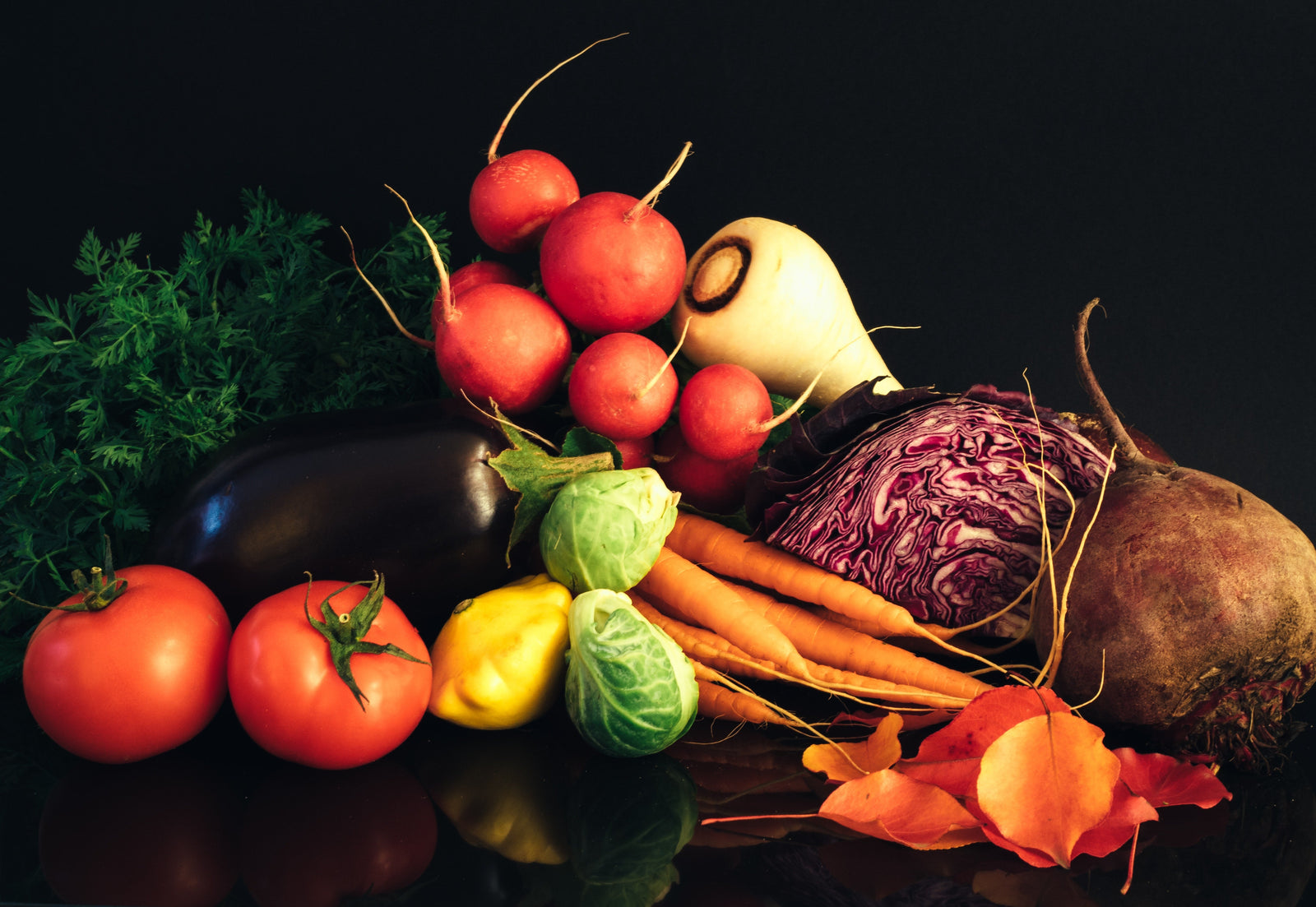I have been a fan of feeding our pets fresh whole foods for decades. Some pet owners promote prey model feeding, which does not include fruits or vegetable matter. While I do believe there is some merit to this approach, I do include fresh or dehydrated vegetables and/or fruits to most meals for my dogs and cats. Cats get a smaller percentage than the dogs, but they still have a need for fiber in their diet. In order to feed a complete prey model diet, the whole animal must be fed, including all internal organs, glands, fur, and feathers.
From a Traditional Chinese Medicine Food Therapy point of view, vegetables can act as Phlegm drainers (peppers, radish, kelp, water chestnuts, Shiitake mushrooms, garlic, ginger, peppermint, thyme, basil, fennel, rosemary, apples, oranges, pears), Blood Tonics (dark leafy greens, sweet potatoes, yams, beets, pumpkin, parsley, dates, figs, parsley), help move Stagnation (carrots, radish, watercress, parsley, garlic, hawthorn berry, dill seed, ginger, turmeric), or help Drain Damp (barley, rye, alfalfa, celery, mushrooms, radish, turnip, asparagus, kelp, lettuce, pumpkin, parsley, peppers, lemon, cranberry, papaya). Choosing the right fruits and vegetables to add to your pet's meal can be tailored to benefit medical conditions that may be present.
A study performed at Purdue University back in 2005 showed benefits of adding vegetables to meals for Scottish Terriers. Owners of dogs with Transitional Cell Carcinoma (92 dogs) of the bladder or urethra completed a questionnaire regarding their dogs' diet and intake of vitamin supplements in the year prior to diagnosis of TCC; owners of control dogs (83) completed the questionnaire for a comparable time period. Results suggested that consumption of certain vegetables may prevent or slow the development of TCC in Scottish Terriers. Dogs consuming vegetables at least 3 times/week showed a decreased risk of developing TCC. Consumption of green leafy vegetables and yellow-orange vegetables showed the best results. Consumption of cruciferous vegetables was not significantly associated with a similar reduction in risk of developing TCC.
It amazes me that the veterinary profession has recommended that pet owners feed only processed pet food while ignoring scientific evidence that fresh whole foods improve the health of our pets. Don't be afraid to add some color to your pet's food bowl. I recommend daily feeding of foods that color the rainbow.
If you want to learn more about feeding your pets a healthy, whole food diet, try making puploaf or making meals specific to your pet's health issues.
Photo by Sharon Pittaway on Unsplash
Disclaimer: This content is for informational purposes only and is not meant to diagnose, treat, or replace consulting a primary veterinarian for individualized care.

